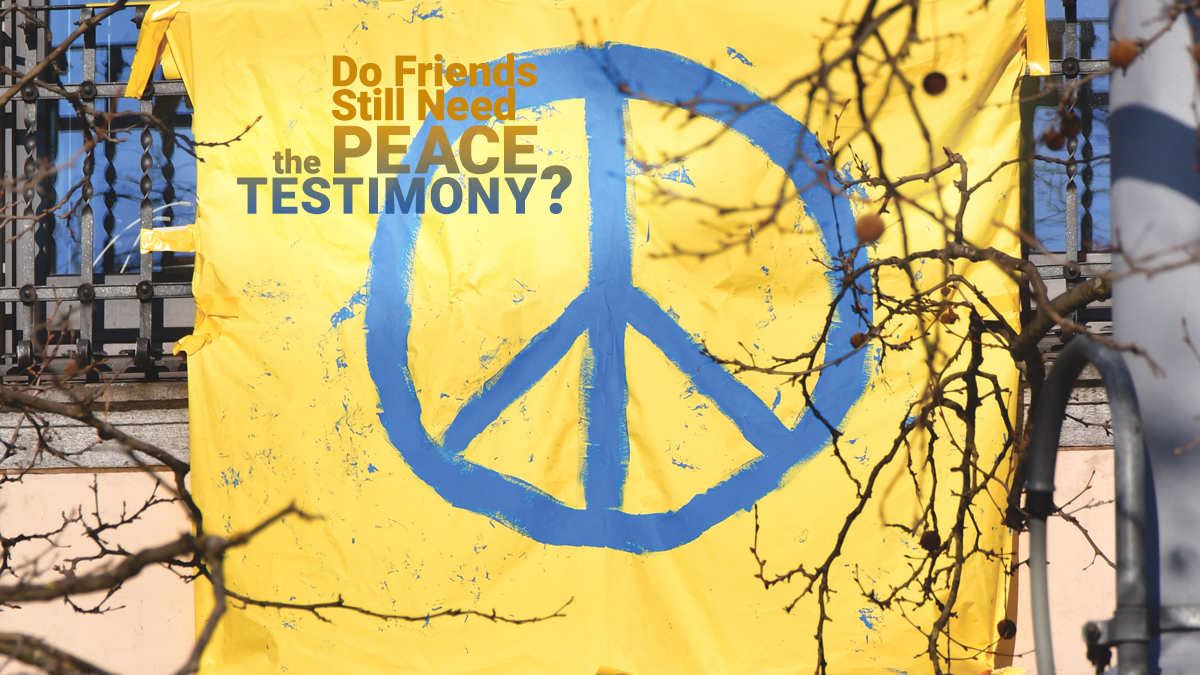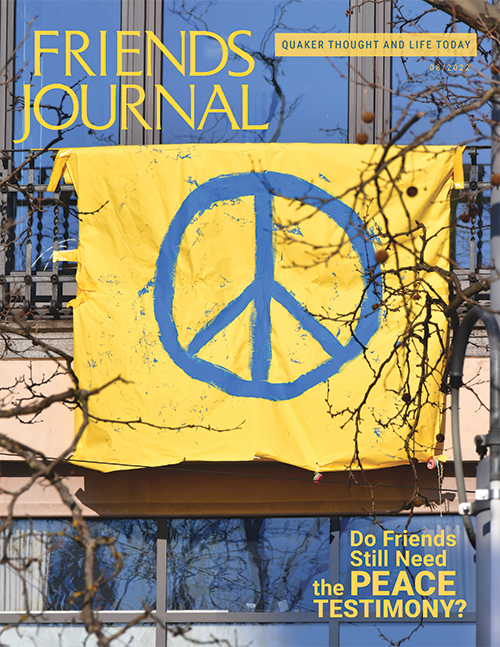If you ask the average person on the street what Quakers believe, a top answer will be peace: we’re the conscientious objectors; we practice nonviolent civil disobedience; we are praised for our relief work in wartime.
But for all its centrality to our faith, the peace testimony has been remarkably fluid over the centuries. In our first decade, during the tumultuous years of Oliver Cromwell’s rule following the English Civil War, Friends served in the military and saw the army as a potential instrument of God’s work. It was only with the restoration of the monarchy in 1660 that Friends coalesced around a testimony of peace and codified it with a statement to the new king, Charles II.
That statement is the cornerstone of our peace testimony and rings with spiritual truth, including observations such as that war comes from those who are “lovers of themselves more than lovers of God” and how “that Spirit of Christ by which we are guided is not changeable, so as once to command us from a thing as evil, and again to move unto it.” But its timing clearly represented a truce with Charles II. Friends were explicitly promising that they would not get involved in the kinds of civil unrest that had led to the beheading of his father. Friends’ radical vision would be spiritual and not political. A cynic might note that the Declaration paid off handsomely for Friends: Charles II later granted William Penn 45,000 square miles of prime real estate. Unworried by political concerns, Friends started a colonizing push against Mid-Atlantic native nations and became major slaveholders. Whose peace was it?
Friends slowly began discerning ways to live in more peaceful harmony while engaging in civil politics. But throughout this time, the peace testimony’s influence has waxed and waned. Many antislavery young Friends felt God’s leading to join the Union Army in the Civil War, sometimes supported by their meetings. None other than Lucretia Mott let part of her Philadelphia-area estate be used as a military training ground for 11,000 free Blacks and escaped slaves, named with no apparent sense of irony after William Penn. In World War II, most eligible North American Friends served in the military.
Many mid-twentieth-century Friends recommitted to pacifism as a central tenet of their beliefs. The antiwar and justice activism in the 1960s and ’70s brought new seekers to our fold. I myself wandered into Quakerism from peace activism in the mid ’80s.
I think every generation of Friends needs to wrestle with the peace testimony—to see where it gives us strength and guidance, but also to see where it perhaps keeps us from engaging in complicated and messy movements for human rights. Since February, many of us have been torn by how to respond to the senseless war of aggression in Ukraine; a robust debate about the peace testimony has taken place in our Forum.I’m humbled that Friends Journal serves as a place where Friends do this spiritual and political wrestling. I trust we will find that peace testimony is robust enough for our questions and debates. Our web comments and Forum are always open.





It seems a crucial oversight to begin this brief overview with Friends serving in Cromwell’s army without noting George Fox’s declaration to Cromwell: “I denied the wearing or drawing of a carnal sword, or any other outward weapon, against him or any other man; and that I was sent of God to stand a witness against all violence…” (Journal, FUP, 1976, p. 212).
A cynic might note that the Declaration paid off handsomely for Friends: Charles II later granted William Penn 45,000 square miles of prime real estate.
Not truth. The land was granted to William Penn as repayment of a debt of 16,000 pounds owed to his father by the crown. Sir William Penn was an admiral in the British navy and a royalist, a supporter of Charles I who was beheaded, and of Charles II upon the Restoration.
Besides being repayment of debt owed, there was the loyalty to and support of the crown that was being rewarded.
Yes, the colony was repayment for a debt from William Penn Jr.’s father. But as you point out, it was also a reward for loyalty to Charles II. More militant groups like the Fifth Monarchists were wiped out by the newly restore monarchy while Penn was still a teenager. It’s unlikely a rebellious aristocrat from a wealthy family would have joined them but even if they were still around and he did join, it begs belief that the king would have awarded him a colony, no matter how large a debt existed. It’s extremely unlikely there would have been a Pennsylvania colony were it not for the 1660 peace declaration.